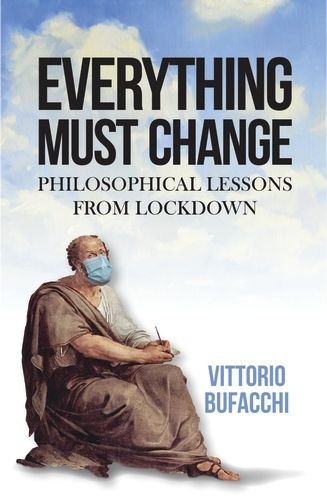Readings Newsletter
Become a Readings Member to make your shopping experience even easier.
Sign in or sign up for free!
You’re not far away from qualifying for FREE standard shipping within Australia
You’ve qualified for FREE standard shipping within Australia
The cart is loading…






The philosopher Michel de Montaigne said that facing our mortality is the only way to learn the ‘art of living’. This book asks what we can learn from COVID-19, both as individuals and collectively as a society.
Written during the first and second lockdowns, Everything must change offers philosophical perspectives on some of the most pressing issues raised by the pandemic. It argues that the pandemic is not a misfortune but an injustice; that it has exposed our society’s inadequate treatment of its most vulnerable members; that populist ideologies of post-truth are dangerous and potentially disastrous. In considering these issues and more, the book draws on a diverse range of philosophers, from Cicero, Hobbes and Arendt to prominent contemporary thinkers.
At the heart of the book is a simple argument: politics can be the difference between life and death. With careful reflection we can avoid knee-jerk decision making and ensure that the right lessons are learned, so that this crisis ultimately changes our lives for the better, ushering in a society that is both more compassionate and more just. – .
$9.00 standard shipping within Australia
FREE standard shipping within Australia for orders over $100.00
Express & International shipping calculated at checkout
The philosopher Michel de Montaigne said that facing our mortality is the only way to learn the ‘art of living’. This book asks what we can learn from COVID-19, both as individuals and collectively as a society.
Written during the first and second lockdowns, Everything must change offers philosophical perspectives on some of the most pressing issues raised by the pandemic. It argues that the pandemic is not a misfortune but an injustice; that it has exposed our society’s inadequate treatment of its most vulnerable members; that populist ideologies of post-truth are dangerous and potentially disastrous. In considering these issues and more, the book draws on a diverse range of philosophers, from Cicero, Hobbes and Arendt to prominent contemporary thinkers.
At the heart of the book is a simple argument: politics can be the difference between life and death. With careful reflection we can avoid knee-jerk decision making and ensure that the right lessons are learned, so that this crisis ultimately changes our lives for the better, ushering in a society that is both more compassionate and more just. – .